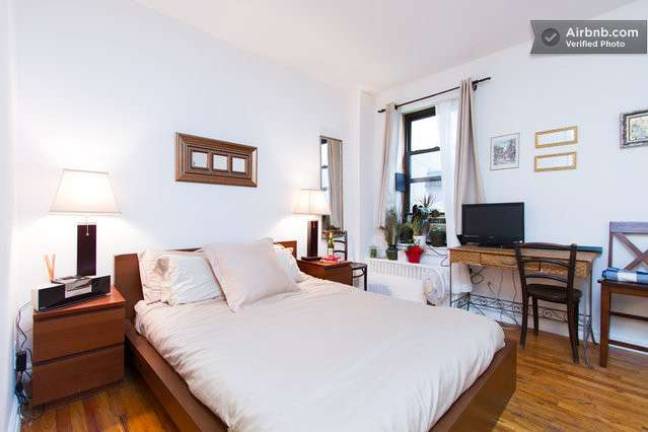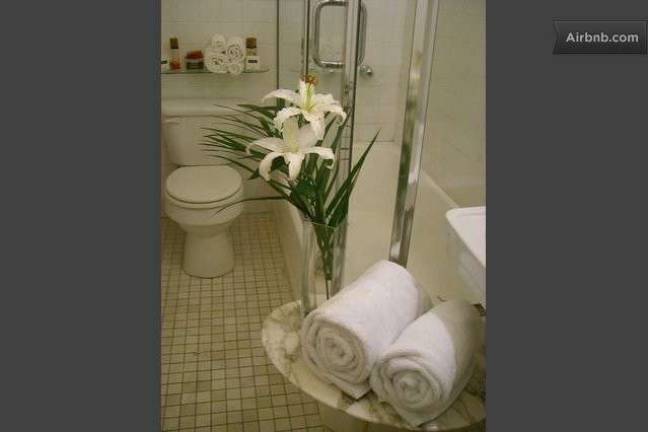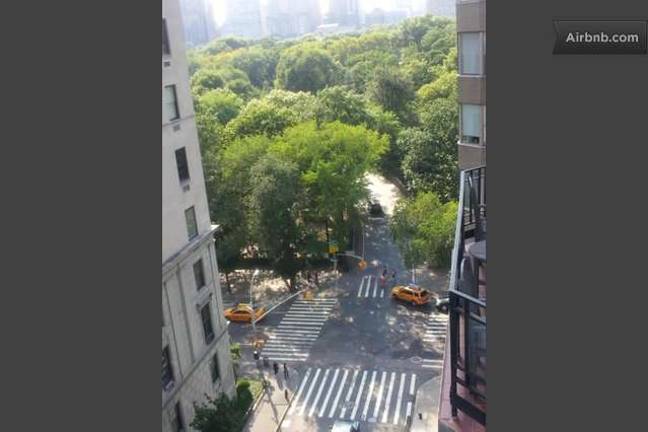Renting Out Rooms May Cost You



Locals who list rooms and apartments on the travel site AirBnB could face serious fines from the city
By Adam Janos
David, a resident in a two-bedroom on Rivington Street, is just trying to make ends meet. He has no agenda to destroy affordable housing in the city. And yet recent actions by the city's Environmental Control Board suggest he may be in violation of the illegal hotel laws.
That's because he rents his extra bedroom on AirBnB, a site that allows people to offer their homes for short-term rentals to travelers.
Earlier this month, East Villager Nigel Warren was assessed a $2,400 fine by the city for violating the state's illegal hotel law for renting out his room when he was going on vacation. The fine, which is usually assessed to larger-scale illegal hotel operations rather than individual operators, has some arguing for a reform to restrictions on short-term rentals: one bill has been introduced by Democratic state Sen. Diane Savino, and with another by Republican state Sen. Marty Golden.
State Sen. Liz Kruger (D ? Manhattan Midtown/East Side), who drafted the original illegal hotel legislation that's being debated, says making such reforms would be a big mistake.
"There was an exploding problem throughout my district and the West Side, where multifamily residential units were being stolen away from their intended legal purpose and turned into illegal business, illegal hotel rooms, that did not follow hotel law, did not pay taxes, and had strangers having access to peoples buildings without permission," Kruger said.
"They [AirBnB] want to be a tool, an instrument for people who have decided it's a good model of business to take residential models, and turn them into continuous, transient hotel rooms."
That's not how David sees it. (He did not want his last name used since he fears a crackdown from the city.) A freelance set and costumer designer in New York's theatre world, he's met people from all around the globe, and hangs a map in his room of the cultures that have crossed paths in his bedroom. He fondly recalls one woman, from Dusseldorf, who stayed in his second bedroom just as he was preparing for his own vacation to her native Germany. While she stayed in his home on Rivington Street, he took a vacation to her city and lodged in her vacated apartment. His flight back to New York coincided with her own return home, and they shared a coffee in the Dusseldorf airport as they crossed one another's tracks.
According to New York's illegal hotel law, David's trip-swap could have been a punishable offense; that's because you're not allowed to sublet a room for under thirty days to another tenant and vacate your premises.
"This is one of the best things I've ever done," David said. "It's been such a great experience. I have a map in my room that I mark, and I have guests from all over the world come and stay with me."
Beyond the multiculturalism, it's also a financial anchor: when freelance work dries up, bringing people into the second bedroom of his $1,800/month two-bedroom can account for up to 90 percent of his monthly earnings.
The site also offers a significantly discounted rate compared to traditional hotels, especially in trendy areas of Manhattan. A listing for a studio with outdoor space on the Upper East Side's York Avenue goes for $174 a night.
Another studio on East 66th Street with views of Central Park and hotel-like amenities available from the host goes for $244 a night. By comparison, a stay at The Carlyle on East 76th Street for the same week is $573 a night.
According to AirBnB spokesperson Nick Papas, "Eighty-seven percent of AirBnB hosts in New York are renting out their primary residence. They're regular New Yorkers, and they're away for the night, or have an extra bedroom, or whatever." To be lumped in with the illegal hotels seems, to him, a crime of generalization.
Senator Kruger said that the laws could be more specific.
"If you wanted to create a law where you get permission for X days for [rental of] your primary unit per year, of course I would support that," she said. But she also contends that illegal hotels have flooded the residential market, and have taken away affordable housing at a time when there's a crisis and lack all across Manhattan.
David doesn't quite see it that way.
"It's kind of a grey area, yes. There are people coming and staying? but I look at it as a lot of short-term roommates."